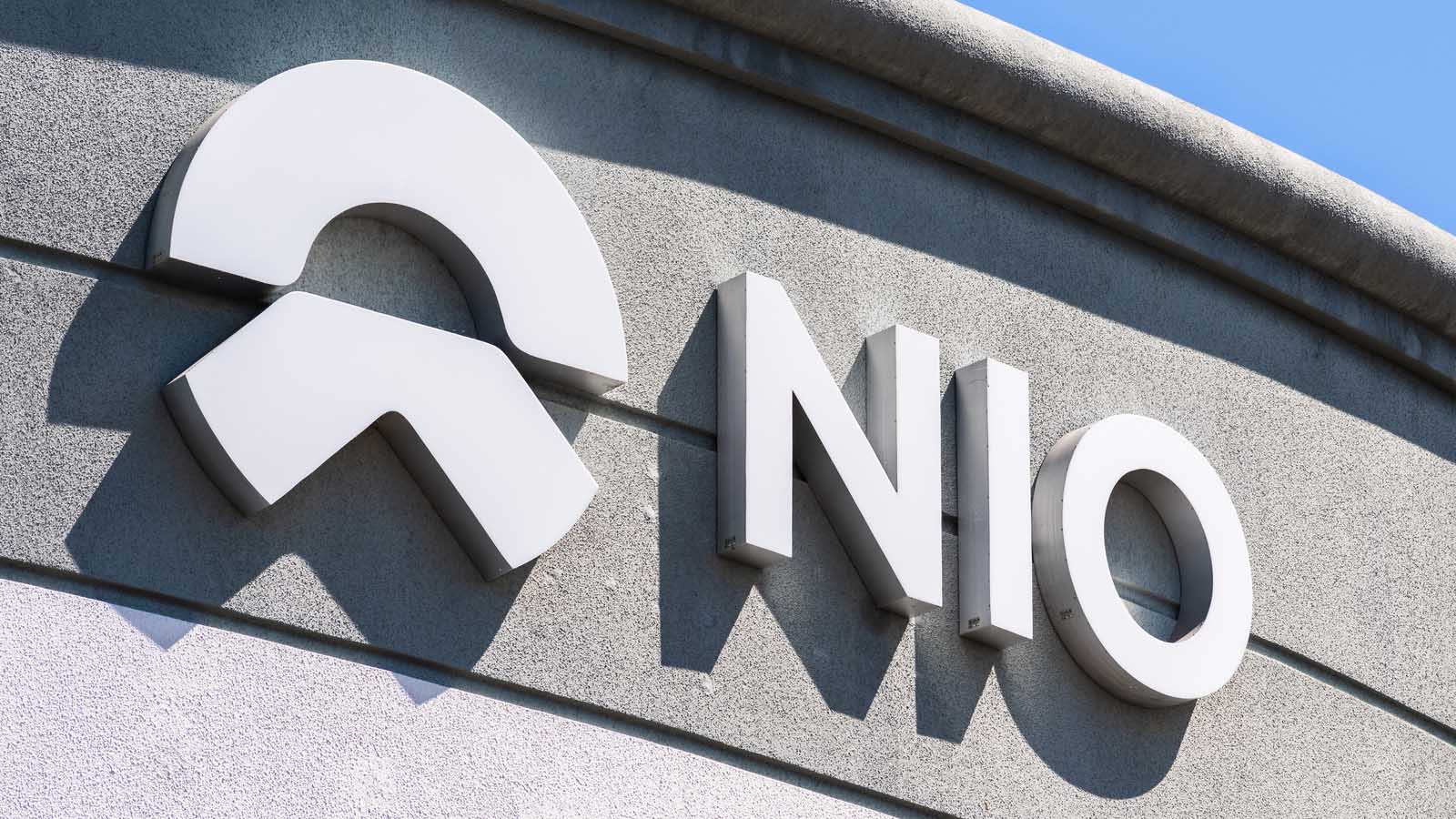As I’m preparing my latest article about Nio (NYSE:NIO), the hard-charging Chinese manufacturer of electric vehicles (EVs), Nio stock trades for $60. That values the company at $93.6 billion, good for the fifth spot amongst the world’s largest automakers by market capitalization.

On Feb. 1o, Deutsche Bank analyst Edison Yu reiterated his “buy” rating and $70 price target. By hitting Yu’s target, Nio could become the third-largest automaker in the world.
Here’s why Volkswagen (OTCMKTS:VWAGY) and BYD (OTCMKTS:BYDDF) ought to be looking in their rearview mirrors.
Much Has Changed for Nio Stock in the Past Year
Approximately 15 months ago, I didn’t have much good to say about the upstart EV manufacturer:
“As Taulli [InvestorPlace contributor Tom Taulli] points out, the company’s burning through cash at such a rate, any future equity or debt financing arrangements will be highly one-sided for the entity providing the lifeline and terrible for current shareholders.
“Nio’s Altman Z-Score, a predictor of future bankruptcy, is -4.45 at the current moment. That’s nowhere near where it needs to be to give investors a warm, fuzzy feeling.
“I wish I had better news for shareholders of Nio stock. But you can’t put lipstick on a pig.”
Of course, in hindsight, we know that Nio snagged $1 billion in critical financing less than five months later, and the rest is history. Forever, that will be known as the turning point for the company.
So, by June 2020, I fully converted from skeptic to enthusiast, suggesting a double-digit stock price by the end of the year was totally realistic. It finished 2020, just shy of $50.
It’s amazing what a billion dollars will do for your confidence.
A 17% Gain Puts Nio At or Near Third Spot
Based on the analyst’s 12-month target price of $70, the price of Nio stock only has to appreciate by 17% over the next year to hit the target. At the rate it’s growing, that seems like a slam dunk.
Nio recently announced further collaboration with the Hefei municipal government, the same people who rescued the company from crashing in April 2020. As part of this collaboration, the Hefei government plans to reinvest the returns from their equity investment in Nio to further support EV production in the city.
Hefei is focusing on making the city a hotspot for all things EV. As part of this expansion, the city will build the Hefei Xinqiao Smart Electric Vehicle Industrial Park. Importantly, Nio plans to use this park as the foundation for building its global growth. Yu said:
“This lays the groundwork for capacity expansion to help NIO reach its +300k longer term volume target or nearly 3x current capacity. Details were not provided on financing sources, but we suspect there will be large support in the form of bank credit lines or arrangements similar in nature.”
A little success and the lenders are falling all over themselves to get in on the action.
What’s the old saying? A banker will always give you an umbrella when the sun is shining and there’s not a cloud in the sky.
Anyway, a $70 share price puts Nio’s market cap at $109 billion, about the same value as BYD’s current market cap.
However, I think it’s fair to say that if Nio moves higher over the next 12 months, then BYD and Volkswagen, not too far behind at $107 billion, should too.
It’s Got to Go to $80 or Higher to Grab the Third Spot
Based on 1.56 billion shares outstanding, an $80 share price by this time next year puts its market cap at $125 billion, giving it a little breathing room over its two peers.
Can it get there? I think it can gain 34% over the next 12 months to get to the magic number. Here’s how.
In 2020, Nio delivered 43,728 vehicles. Based on its current market cap of $93.6 billion, that’s $2.14 million per delivered vehicle. In 2019, it delivered 20,565 vehicles. It had 831.9 million shares outstanding as of Dec. 31, 2019, and a share price of $3.72. That’s $150,482 per delivered vehicle.
I’m going to assume that Nio doubles its deliveries once more in 2021. So, based on $93.6 billion, that’s $1.07 million for each of the 87,456 estimated vehicle deliveries in 2021.
However, Nio could have a fourth vehicle, the EE7 sedan, in production by the fourth quarter, most certainly adding to these numbers. Also, it’s got a fifth vehicle on the drawing board for 2022.
So, based on $1.07 million per delivered vehicle, it will have to deliver 116,822 vehicles in 2021. While possible, I think that’s pushing it. Assuming a vehicle delivery number roughly halfway between 87,456 and 113,636 and $1.65 million per delivered vehicle [halfway between $1.1 million and $2.2 million] and we get 100,546 vehicles delivered at $1.65 million for a market cap of $166 billion or $106.40 per share [1.56 billion outstanding].
I can’t believe I’m saying this, but I think it’s got an excellent chance of blowing through Yu’s target on its way to the third spot in the global pecking order.
Long term, Nio’s a buy.
On the date of publication, Will Ashworth did not have (either directly or indirectly) any positions in the securities mentioned in this article.
Will Ashworth has written about investments full-time since 2008. Publications where he’s appeared include InvestorPlace, The Motley Fool Canada, Investopedia, Kiplinger, and several others in both the U.S. and Canada. He particularly enjoys creating model portfolios that stand the test of time. He lives in Halifax, Nova Scotia. At the time of this writing Will Ashworth did not hold a position in any of the aforementioned securities.
